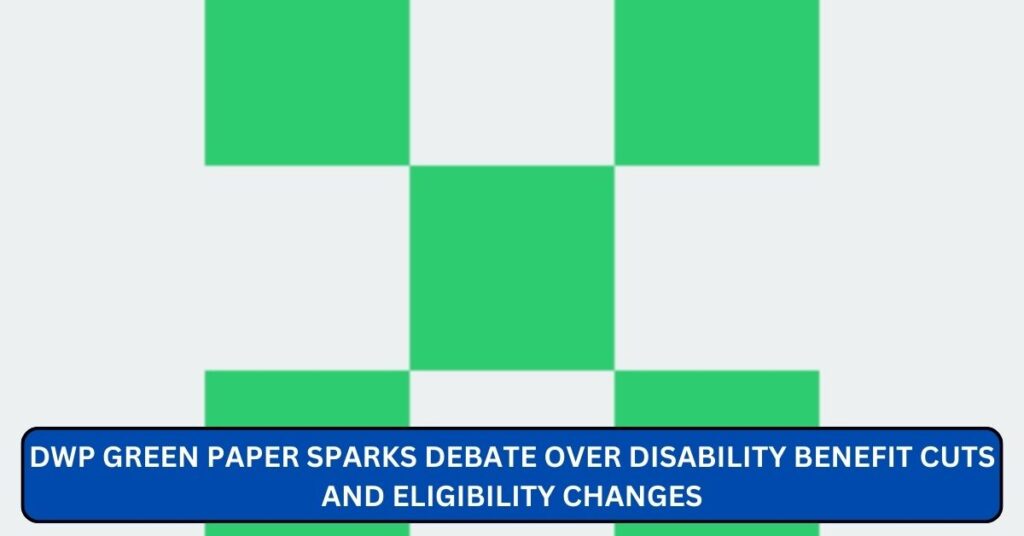The UK’s Department for Work and Pensions (DWP) has launched a new Green Paper titled Pathways to Work: Reforming Benefits and Support to Get Britain Working. The paper proposes major changes to disability benefits, including Personal Independence Payment (PIP) and Universal Credit (UC). However, disability rights groups and experts are calling it a “bogus” consultation, criticizing the process as misleading, exclusionary, and lacking transparency.
Key Proposals in the Green Paper
The proposed welfare reform introduces significant changes that could impact thousands of disabled individuals in the UK:
- Abolition of the Work Capability Assessment (WCA): Eligibility for additional health-related financial support under Universal Credit will now be linked solely to PIP rather than a separate assessment.
- PIP Eligibility Changes: To qualify for the daily living component, claimants must score at least four points in a single daily living activity instead of the current cumulative eight-point threshold. This could disqualify thousands from receiving essential financial support.
- Cuts to Health-Related UC Payments: The standard personal allowance under UC is set to rise by £7 per week by 2026/27. However, new claimants will see a £47 per week reduction in health-related payments.

Why the Consultation Process Is Being Criticized
Despite these drastic proposals, critics argue that the consultation process is fundamentally flawed:
1. Key Issues Are Missing from Public Consultation
One of the most significant criticisms is that the abolition of the WCA—arguably the most impactful change—is not open for public feedback. Many believe this exclusion undermines the democratic process, making the consultation a mere formality rather than a genuine attempt to seek opinions.
2. Leading and Biased Questions
Disability rights groups argue that many questions in the consultation assume respondents support the proposals. For example, instead of asking whether the new PIP eligibility rule is fair, the consultation asks what kind of support should be given to those who lose their PIP entitlement—assuming that the policy change is already decided.
3. Lack of Data Transparency
Another significant concern is that the DWP has not provided estimates on how many current claimants will lose their benefits due to the proposed changes. Without this information, stakeholders cannot provide informed responses.
Past Controversies and Legal Challenges
This is not the first time the DWP has been criticized for its handling of consultations. In January 2025, the UK High Court ruled that a previous consultation on incapacity benefit cuts was unlawful due to misleading information. (Guardian report). This ruling raises concerns about whether the DWP has learned from past mistakes or if history is repeating itself.

How This Affects Disabled Individuals
Disability advocacy groups, such as Contact, warn that these changes could significantly harm disabled individuals by pushing them further into poverty. The current social security system is already under strain, and these reforms could result in thousands losing access to essential benefits
What’s Next?
The consultation period is set to run until May 2025. However, given the backlash, there are calls for the process to be reviewed or even halted. Advocacy groups urge affected individuals and the public to participate and make their voices heard through official channels such as the DWP consultation page.
Final Thoughts
While the UK government argues that these reforms aim to make welfare more efficient, the consultation process itself raises red flags. Critics call it a rubber-stamping exercise rather than a genuine attempt to gather feedback. If these concerns hold true, the reforms could lead to another legal battle similar to the 2025 High Court ruling against the DWP.
For now, the most pressing question remains: Will the government listen to public concerns, or will these controversial changes be pushed through despite widespread opposition?
This article has been carefully fact-checked by our editorial team to ensure accuracy and eliminate any misleading information. We are committed to maintaining the highest standards of integrity in our content.



